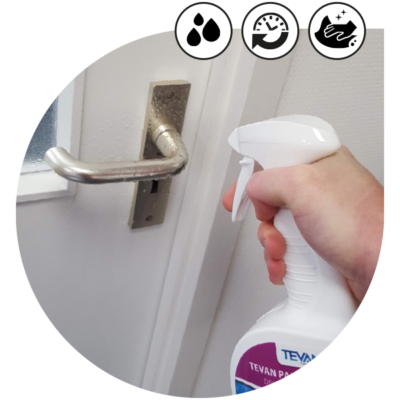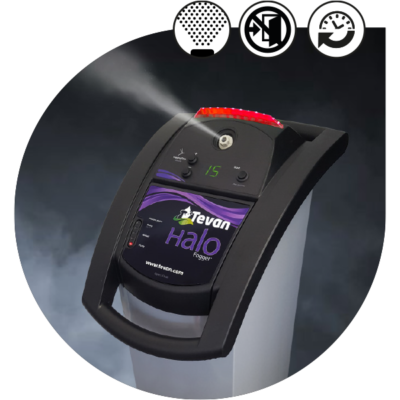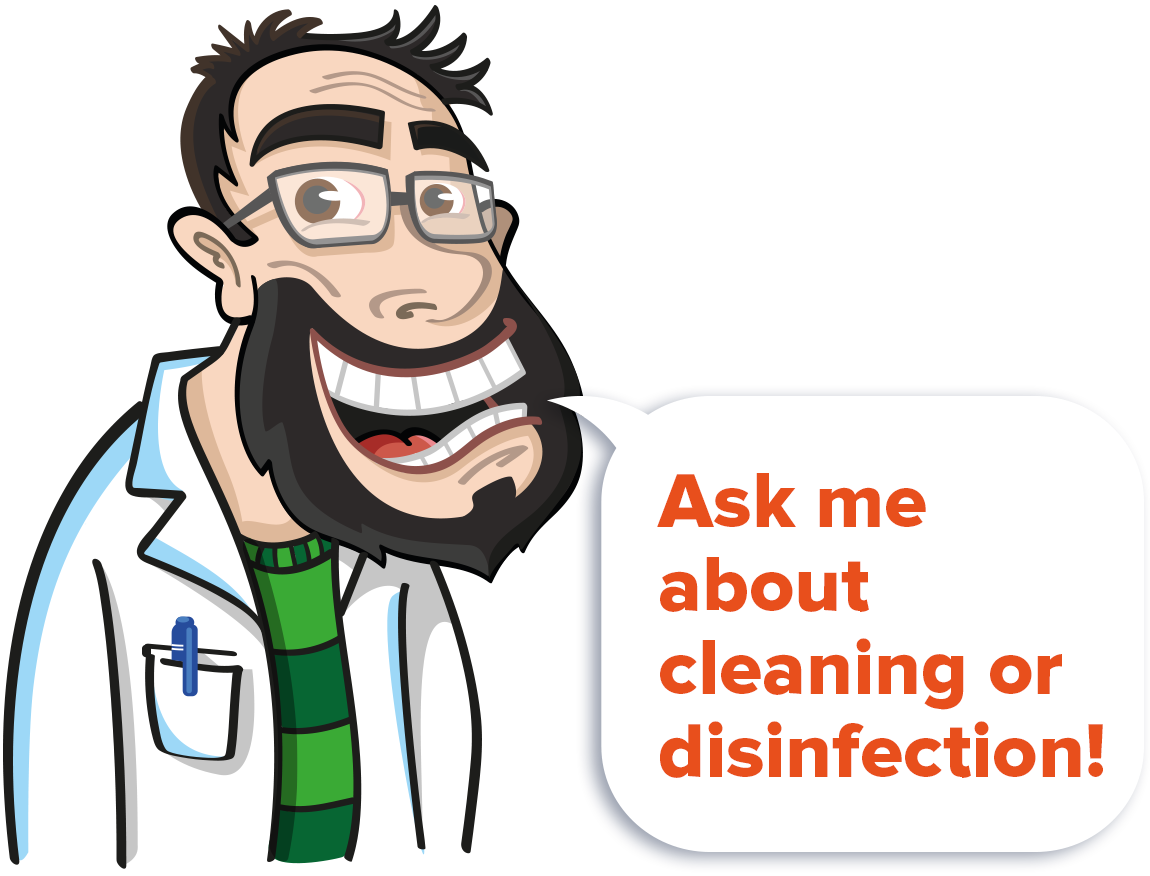The difference between spraying and fogging
Disinfection with spraying or fogging
What is spraying?
By spraying (small) drops form that end up on the surface. This will make the surface wet. The to-be disinfected surface must remain wet until the contact time is over. This is the only way to ensure that a surface is effectively disinfected. The contact time depends on the disinfectant and can be found in the legal instructions for use.

What is fogging?
When you start fogging, a machine creates particles that are so small that they float in the air. Contrary to spraying, fogging is “dry” disinfection. With fogging you can easily disinfect an entire room. It is important that you do not enter the room during the treatment.

Which disinfection method do you use?
Whether you are going to spray or fog depends on your situation. If you want to disinfect locally, so for example only surfaces that are touched a lot, use spraying. If you want to disinfect an entire room, for example in hospitals, you choose to fog. This way, you can also disinfect surfaces that are difficult or impossible to reach by spraying.

Wet vs. dry disinfection
When disinfecting, it is important that you think carefully about whether you are going to disinfect wet or dry. If you are going to spray, you are using wet disinfection. As a result, you have to take into account, for example, electronic equipment that is in the room. Fogging is called ‘dry’ disinfection. Fogging allows all electronic equipment to remain in the room during the treatment.
Size of the particles
The difference between spraying and fogging is mainly determined by the size of the particles. When spraying, the particles are at least 50 micrometers in size. This will cause them to fall down and land on the surface. During fogging, the particles are smaller than 50 micrometers. This keeps them floating in the air and prevents the surface from getting wet.
Spraying versus fogging
Disinfecting by spraying

Disinfecting by fogging
Safety
When disinfecting, it is important that you read and follow the safety instructions. Only use disinfectants with official approval from the Ctgb. When fogging it is important that both the disinfectant and the machine are approved for combined use.

Do you have a question for Johan? Ask it here and maybe he’ll answer it in his next column.

